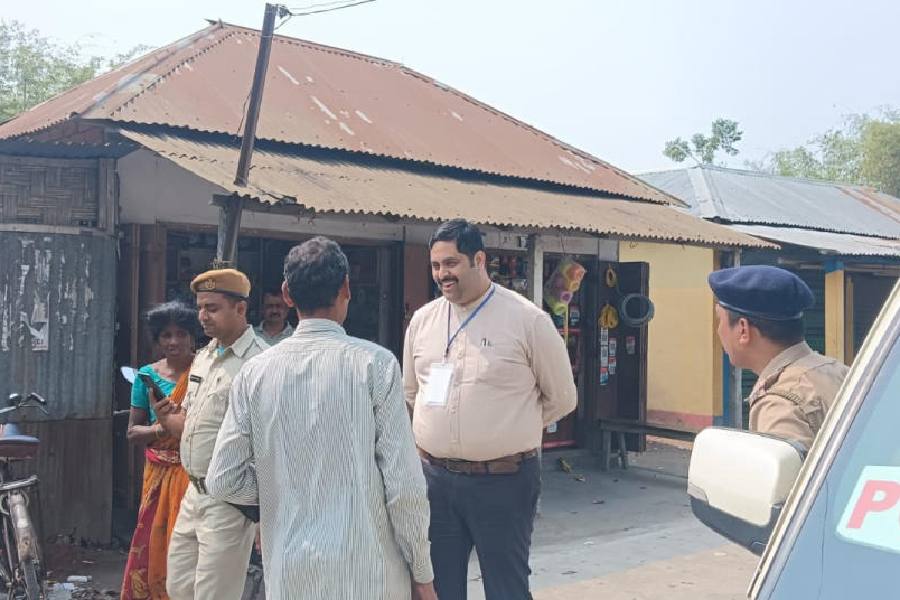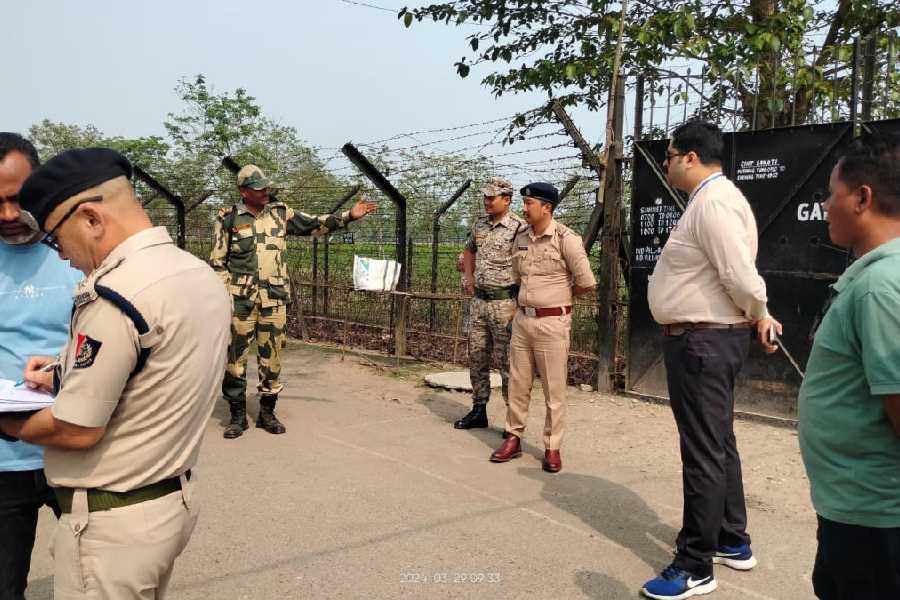Dildar Sarkar, resident of a village on the India-Bangladesh border, stumped district officials who had arrived on Friday to explain to the villagers why they should exercise their right to vote.
“Sir, we want to vote, but we know we can’t,” the man in his late thirties told Tomojeet Chakraborty, Jalpaiguri (Sadar) SDO, who led the team of officials.
“Why? What’s the problem?” Chakraborty asked Dildar, one of the 95-odd registered voters in Chit Sakati, a village in Sadar block of Jalpaiguri, around 75km from Siliguri town.
The village is located outside the Indian “mainland” — it lies entirely on a 150-metre-wide strip between the barbed fences and the zero line that separates the two countries. There are several such villages in north Bengal.
Dildar told the SDO that whenever he or any other villager crossed the barbed fences to enter the Indian mainland, the BSF took away their voter cards.
“If we submit our voter cards with the BSF on April 19 (when elections are scheduled for the Jalpaiguri Lok Sabha seat) while crossing the fence, how will we vote?” he asked.
Chakraborty appeared non-plus.
Chit Sakati has a population of around 160 people. Residents have to cast their vote at Binnaguri BFP School on the Indian side of the fence, the way to which passes through the BSF’s Jhapartala camp.
“We don’t have other identity proof that can be shown at the polling booths,” said Mobarak Sarkar, another villager.
He cited another problem with reaching the mainland. “We have to cross Kuram, a stream, on our way to the fence. The wooden bridge is in a ramshackle condition and can collapse at any time. If it does, we shall have to wade through knee-deep water,” Mobarak said.
Realising the urgency of the voter card problem, Chakraborty, who was accompanied by deputy superintendent of police (HQ) Sherpa Dorjee, promptly got in touch with BSF authorities. He also spoke to officers of the local Manikganj police outpost.
“We have told the BSF and the police to ensure that all the voters of Chit Sakati reach their booth with their voter cards. They will not have to submit the cards to the BSF on polling day,” the SDO said.
A source in the administration said BSF officials had initially rejected the proposal, saying any departure from usual practice entailed the risk of illegal infiltration on polling day.
“Finally, they agreed that on election day, the voters of Chit Sakati will submit photocopies of their voter cards before heading to the booth,” the source said.
However, some of the villagers wondered whether promise would translate into reality on D-Day.
“District officials have assured us that the BSF jawans would allow us to cross the fence on polling day if we deposit photocopies of our voter card. It remains to be seen whether they (the BSF) actually allow us,” said Helal Sarkar, a Chit Sakati resident.

Tamojit Chakraborty, the SDO (Sadar) of Jalpaiguri, speaks with a resident of Chit Sakati village, which is close to the India-Bangladesh border of the district, on Friday Sourced by The Telegraph
Sarkar said the BSF personnel often seemed to act arbitrarily, citing instances from 15-20 years ago when the restrictions were less rigorous and a few of the villagers had been able to vote.
“At times, some lenient BSF guards would allow some of us in (on polling day), but that has always been discretionary,” he said, expressing fear that the force might revert to the same practice.
Sarkar added: “We want to vote. If we don’t, our names may get deleted from the electoral rolls and it would then create a problem of identity proof.”










